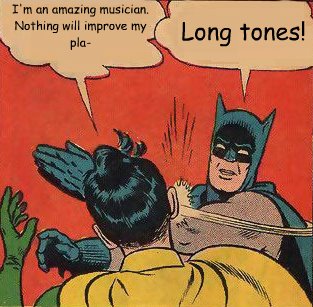Flute Solo Advice from Jeffrey Khaner
The big flute solo from Beethoven’s 3rd Leonore Overture is almost always on orchestra auditions. The opening may not be, but when played, it requires good intonation on the high notes. It is very important to display perfect rhythmic discipline and metronomic control of tempo. Be sure to practice it very carefully with your metronome at every tempo, from much too slow to much too fast.
While doing this, try to memorize how it feels different at each new tempo – what you have to do ever so slightly differently in order to be perfect when the metronome has been moved only 1 notch. When you have done this, you will be able to play comfortably at any speed and accommodate any request for a tempo change at a flute audition.
WRTI 90.1 Interviews our Classical Music Teachers
"This whole thing was very exciting to me because it's a way of accessing students from around the world, in a way that's never been done before." - Jeffrey Khaner
Susan Lewis of WRTI 90.1 recently interviewed ArtistWorks classical music teachers Jeffrey Khaner, Ricardo Morales and David Bilger in detail about what it's like to teach classical music lessons online and how their students learn online through Video Exchange. Listen to this very insightful interview here, or just click on the image above to have it open in a new window. "
Essential daily flute lessons: Whistle tones and long tones
 Every flute player wants to have complete control over their sound and master the ability to make small adjustments and get a big effect. A well-trained flute embouchure is at the core of this mastery, but breath control also plays a vital role. All flute lessons should begin with exercises that strengthen these foundational skills on which to build.
Every flute player wants to have complete control over their sound and master the ability to make small adjustments and get a big effect. A well-trained flute embouchure is at the core of this mastery, but breath control also plays a vital role. All flute lessons should begin with exercises that strengthen these foundational skills on which to build.
Although “whistle tones” seem like a bit of a parlor trick, students of any skill level can use these to good effect when they learn to play the flute. When I was sitting in the hallway outside the door of my flute teacher at Penn State, I would practice my whistle tones to warm up my embouchure.
The sound is very hard to control and by practicing them before my flute lessons, I was able to make fine adjustments and gain new muscle memory with these subtle changes.
 Every flute player wants to have complete control over their sound and master the ability to make small adjustments and get a big effect. A well-trained flute embouchure is at the core of this mastery, but breath control also plays a vital role. All flute lessons should begin with exercises that strengthen these foundational skills on which to build.
Every flute player wants to have complete control over their sound and master the ability to make small adjustments and get a big effect. A well-trained flute embouchure is at the core of this mastery, but breath control also plays a vital role. All flute lessons should begin with exercises that strengthen these foundational skills on which to build.
Although “whistle tones” seem like a bit of a parlor trick, students of any skill level can use these to good effect when they learn to play the flute. When I was sitting in the hallway outside the door of my flute teacher at Penn State, I would practice my whistle tones to warm up my embouchure.
The sound is very hard to control and by practicing them before my flute lessons, I was able to make fine adjustments and gain new muscle memory with these subtle changes.
Jason is in the video studio for three days!

If you want to follow the action, you can see videos and updates on twitter.com/artistworks . We'll have Jason here for three days filling out the curriculum. Day 2 includes more "studies" and "exercises" as well as more advanced pieces. Jason will also talk about important concepts to classical guitar playing along with issues encountered when switching to classical from other genres of music. Stay tuned!







